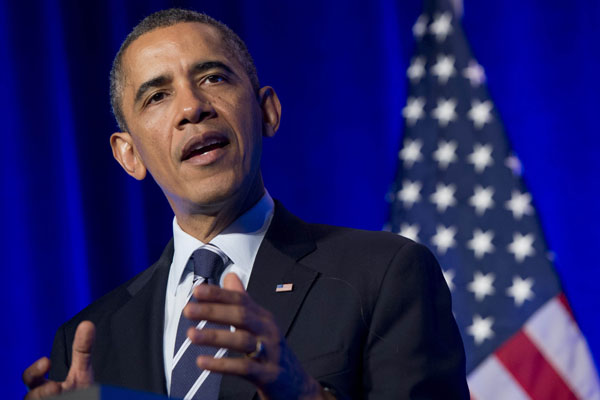
Kenya’s push to have the International Criminal Court cases against President Kenyatta and his deputy William Ruto deferred is facing hurdles from the usual suspects. Interestingly, whether it succeeds or not, it will go down in history as one of the most costly and energy-sapping diplomatic assignments to be undertaken by the Jubilee administration.
Although no official figures have been made public yet, the cost of the reloaded shuttle diplomacy is likely to be humongous. If the numbers quoted in the Kalonzo Musyoka offensive and Deputy President Ruto’s trans-Africa voyage are anything to go by, then the cost of the latest pitch could give one Johnny Carson sleepless nights, wondering how anyone in his right mind would find it so difficult to understand a simple phrase like “Choices have consequences”.
Some may, however, argue that the end justifies the means and therefore the cost of not pursuing the deferral would be staggering in the long run.
But cost aside, what should get Kenyans even more worried is the prospect of the deferral push coming a cropper. So far, all indications are that chances of its success are almost nil, Russia and China’s support notwithstanding. Let me qualify my hypothesis.
In the many years I have covered the goings-on at the United Nations headquarters in New York as a journalist, I have observed a trend that has left even the most prolific of political commentators baffled.
It is like an unwritten rule — one which appears to have been inadvertently left out during the drafting of the charter that established the UN Security Council in 1946: that whenever Russia votes ‘Yes’ on a resolution, the US almost always votes ‘Nay’, and vice versa.
Statistics at the UNSC also indicate that traditionally, the US, the UK and France almost always cast their vote on the same side. There is even a joke in New York that anything the UK says has already been said by the US. And therein lies the first quandary for Kenya.
The second problem lies in President Barack Obama himself. The US leader, who has not been known to sugar-coat his statements while reprimanding purveyors of impunity, has increasingly been supportive of the ICC. In fact, of the three American presidents during whose tenures the ICC has been in operation, Mr Obama is by far the most sympathetic to the Rome Statute.
Unlike his predecessor who loathed the Court so much that he even “unsigned” the Rome Statute, Obama has been vocal in its support.
Although the US is not a signatory to the Rome Statute, Mr Obama has been consistent in appealing to states which ratified it to meet their part of the bargain. Some politicians in his Democratic Party have on occasion equated his support of the deferral to an assault on the international wheels of justice.
Any policy position taken by a US president must have the blessings of his political party. So far, the Kenyan issue has not been given much attention like, say, the situation in the Democratic Republic of Congo.
It is against this backdrop that Obama would be unlikely to casually discard his position on the premise of a “counter-terrorism dimension” belatedly introduced by Kenya and the African Union.
The argument that Mr Kenyatta’s continued presence in Nairobi can in itself foil potential terrorist attacks does not seem to convince Obama to go against government policy.
On the presence of Kenyan troops in Somalia, the US sees this as a continuous engagement, which Mr Kenyatta “inherited” from his predecessor.
In the meantime, everyone is wondering what President Kenyatta would do next should the UNSC reject his plea. Asked the same question by a Voice of America reporter in Washington DC recently, Kenya’s man at the UN, Mr Macharia Kamau, responded; “We have other options… to expect that both our President and his Deputy President would scuttle off to The Hague is ludicrous.”
Now, Mr Kamau is not any other guy in the street. He is arguably one of the most trusted diplomats in Kenyatta’s administration and someone the President has been heavily relying on in recent times for advice on international diplomacy. Therefore, when he says that, Kenya and the AU have alternative options, one needs to think twice before dismissing his remark.
Granted, I have my own misgivings in the manner in which the ICC prosecution has handled the Kenyan cases. However, since no one has raised any issue with the competence of the presiding judges, I would beg to differ with Mr Kamau.
In the unlikely event that Mr Kenyatta would seek my advice, I would urge him to quickly begin scouting for competent Kenyans who are professionals in their field of expertise and hire them to man the most critical ministries in his government as we await the verdict from UNSC. After that, show the world that the prosecutor got the wrong guy by fully co-operating with the International Criminal Court.
Once you prove yourself innocent, concentrate on initiating a credible local process so justice may also prevail for the thousands of post-election violence victims. That is what the world, including the USA, would like to see.
Mr Mureithi is a US-based journalist. (bmjmureithi@aol.com)
Source-bmjmureithiaol.com







